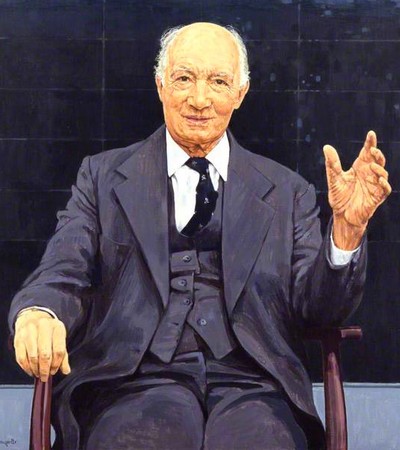Лорд Деннинг цитаты
Лорд Деннинг: Цитаты на английском языке
O'Reilly v. Mackman, [1983] 2 A.C. 238.
Judgments
Southam v Smout [1964] 1 QB 308 at 320.
Denning was quoting William Pitt, 1st Earl of Chatham
Judgments
Denning judged in the Court of Appeal at the time, and held that Sikhs were not a racial or ethnic group. His ruling was overturned in the House of Lords, notably by Ian Fraser, Baron Fraser of Tullybelton, who outlined seven points by which ethno-religious groups were to be defined.
Judgments
Judicial review.
Judgments
“It happened on April 19, 1964. It was bluebell time in Kent.”
Hinz v. Berry [1970] 2 QB 40 at 42.
Judgments
“Mr Thornton was a freelance trumpeter of the highest quality.”
Thornton v Shoe Lane Parking Ltd [1971] 2QB 163; 1 All ER 686.
Judgments
Thornton v Shoe Lane Parking Ltd [1971] 2QB 163; 1 All ER 686.
Judgments
That very day the market manager wrote a letter to Mr. Hook, banning him from trading in the market.
Ex Parte Hook [1976] 1 WLR 1052 at 1055.
Judgments
Miller v. Jackson [1977] QB 966 at 976.
Judgments
Beswick v. Beswick [1966] Ch 538.
Judgments
Introduction to The European Court of Justice: Judges or Policy Makers? (London: Bruges Group, 1990).
Packer v. Packer [1954] P. 15 at 22.
Judgments
Jarvis v. Swans Tours Ltd. [1973] Q.B. 233 (C.A).
Judgments
Re Weston's Settlements, [1969] 1 Ch 223.
Judgments
British Crane Hire Corporation Ltd v. Ipswich Plant Hire Ltd [1970] 1 All ER 1059.
Judgments
Burgess v. Rawnsley (1975) 30 P. & C.R. 221.
Judgments
H.P. Bulmer Ltd v J. Bollinger SA [1974] Ch 401 at 418.
Judgments
The Bramley Moore [1964] P 200 at 220, commenting on the limitation of liability in maritime claims.
Judgments
“This is a case of a barmaid who was badly bitten by a big dog.”
Cummings v. Granger [1977] 1 All ER 104 at 106.
Judgments
Kerry v. Smith & Warden [1967] 1 QB 347.
Judgments
So be it—unless he has justification by law.
Southam v Smout [1964] 1 QB 308 at 320.
Denning was quoting William Pitt, 1st Earl of Chatham
Judgments
Interview (16 August 1990), quoted in The Times (17 August 1990), p. 1
Response to the Remembrance Day bombing (8 November 1987), quoted in The Times (9 November 1987), p. 2
Speech https://api.parliament.uk/historic-hansard/lords/1986/jul/31/european-communities-amendment-bill-1#S5LV0479P0_19860731_HOL_228 in the House of Lords against the Single European Act (31 July 1986)
Speech to a Foyles literary luncheon (17 October 1984), quoted in The Times (18 October 1984), p. 2
Speech to Justice, London (28 June 1977), quoted in The Times (29 June 1977), p. 4
